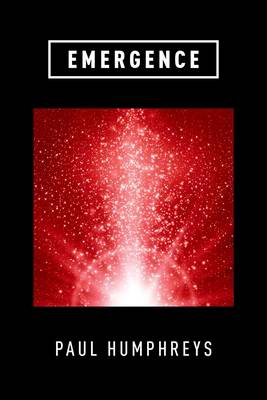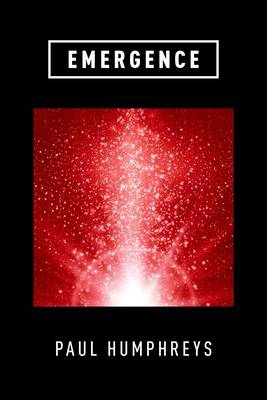
Door een staking bij bpost kan je online bestelling op dit moment iets langer onderweg zijn dan voorzien. Dringend iets nodig? Onze winkels ontvangen jou met open armen!
- Afhalen na 1 uur in een winkel met voorraad
- Gratis thuislevering in België vanaf € 30
- Ruim aanbod met 7 miljoen producten
Door een staking bij bpost kan je online bestelling op dit moment iets langer onderweg zijn dan voorzien. Dringend iets nodig? Onze winkels ontvangen jou met open armen!
- Afhalen na 1 uur in een winkel met voorraad
- Gratis thuislevering in België vanaf € 30
- Ruim aanbod met 7 miljoen producten
Zoeken
Omschrijving
Interest in emergence amongst philosophers and scientists has grown in recent years, yet the concept continues to be viewed with skepticism by many. In this book, Paul Humphreys argues that many of the problems arise from a long philosophical tradition that is overly committed to synchronic reduction and has been overly focused on problems in philosophy of mind. He develops a novel account of diachronic ontological emergence called transformational emergence, shows that it is free of the problems raised against synchronic accounts, shows that there are plausible examples of transformational emergence within physics and chemistry, and argues that the central ideas fit into a well established historical tradition of emergence that includes John Stuart Mill, G.E. Moore, and C.D. Broad. The book also provides a comprehensive assessment of current theories of emergence and so can be used as a way into what is by now a very large literature on the topic. It places theories of emergence within a plausible classification, provides criteria for emergence, and argues that there is no single unifying account of emergence. Reevaluations of related topics in metaphysics are provided, including fundamentality, physicalism, holism, methodological individualism, and multiple realizability, among others. The relations between scientific and philosophical conceptions of emergence are assessed, with examples such as self-organization, ferromagnetism, cellular automata, and nonlinear systems being discussed. Although the book is written for professional philosophers, simple and intuitively accessible examples are used to illustrate the new concepts.
Specificaties
Betrokkenen
- Auteur(s):
- Uitgeverij:
Inhoud
- Aantal bladzijden:
- 312
- Taal:
- Engels
Eigenschappen
- Productcode (EAN):
- 9780190939274
- Verschijningsdatum:
- 15/05/2019
- Uitvoering:
- Paperback
- Formaat:
- Trade paperback (VS)
- Afmetingen:
- 140 mm x 208 mm
- Gewicht:
- 385 g

Alleen bij Standaard Boekhandel
+ 144 punten op je klantenkaart van Standaard Boekhandel
Beoordelingen
We publiceren alleen reviews die voldoen aan de voorwaarden voor reviews. Bekijk onze voorwaarden voor reviews.











